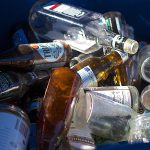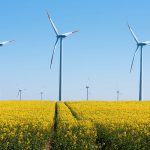
Inventor turns domestic rubbish overnight into hot water
 A Midlands businessman has invented a machine which householders can fill with rubbish overnight and they can wake up to a tank of hot water in the morning.
A Midlands businessman has invented a machine which householders can fill with rubbish overnight and they can wake up to a tank of hot water in the morning.
All that will remain of the recycling in Nik Spencer’s mini kitchen incinerator is a small amount of ash that can be thrown away.
The HERU, or Home Energy Resource Unit, which is attracting worldwide interest, is the size of a washing machine and users fill the main chamber with their domestic refuse and then close the lid.
Items including coffee cups, plastic bottles, food trays and even nappies and grass cuttings are heated up and turned into charcoal which is then burned to heat more hot water.
At the end of the eight-hour cycle a single black bin bag of rubbish is converted into 72 litres of hot water in winter and 122 litres in summer, which is stored in a standard tank.
“I used to have rubbish collected in lorries, which were doing only five miles to the gallon to travel to the recycling centres,” said Nik, who has spent 20 years in the waste disposal industry.
“Then I thought it would be much more environmentally friendly to convert the refuse directly in the home or business to provide heat and hot water.”
Even if a user puts in glass or metal by mistake the HERU won’t break down but will provide a clean bottle or tin can at the end of the cycle. Or if it is a snack tube the plastic lid and tube are turned into energy while the aluminium inner sleeve and the steel base remain to be recycled as normal.
Like other white goods in the home all that is needed to set it up are a water supply, a standard 13-amp electrical power supply and a sewer pipe connection. It can be linked to the boiler in the home so it becomes a hybrid water heating system running via HERU or reverting to oil or gas when needed.
“The invention will help house holders by reducing their energy bills,” said Nik, who is based near Evesham, Worcestershire. “But it will also help companies dealing with packaging, drinking straws, coffee cups and uneaten food, all of which are very expensive to collect and process into energy.”
His invention has attracted worldwide interest with inquiries from the offices of the Mayor of New York and the Australian government and he has already appeared on BBC Midlands Today.
Now three of the systems are being developed jointly with Brunel University and Nik is also linking up with three councils in Rugby, Stratford-upon-Avon and Wychavon in Worcestershire to trial the HERU further before planning to go into full production by 2019/20.
Midlands green energy expert Ron Fox, of Noreus Ltd on the University of Keele Science and Innovation Park, said: “This is a very exciting invention and shows how innovative technology can help everyone cut their carbon footprint.”




